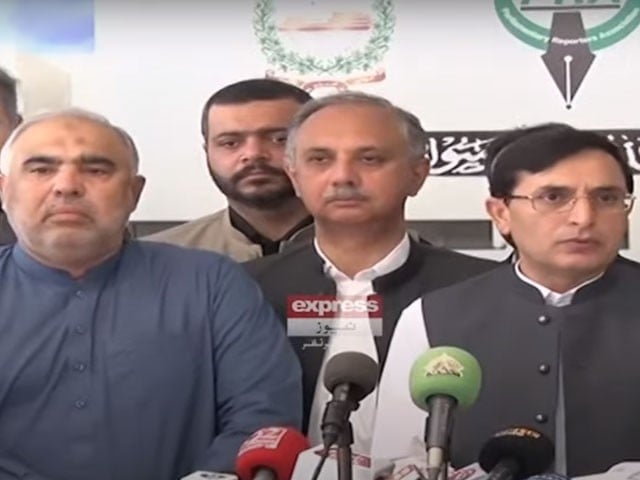ISLAMABAD:
Pakistan Tehreek Insaf (PTI) and Sunni Ittehad Council (SIC) have declared their refusal to support any military operation, demanding that military leadership take Parliament into confidence first.
The development comes a day after the Apex Committee of National Action Plan, chaired by Prime Minister Shehbaz Sharif, approved “Operation Azm-e-Istehkam” to eliminate terrorism and extremism across the country.
The meeting, held in Islamabad on Saturday, included key federal cabinet members such as the Deputy Prime Minister and Foreign Minister, Defence Minister, Interior Minister, Finance Minister, Law Minister, and Information Minister.
Chief ministers from all provinces and Gilgit-Baltistan, services chiefs, provincial chief secretaries, and other senior civilian, military, and law enforcement officials also attended.
The forum conducted a comprehensive review of the ongoing anti-terrorism campaign and internal security situation. It examined the progress of the National Action Plan’s multi-domain principles and highlighted areas where implementation was lacking. Emphasis was placed on addressing these shortcomings as a priority.
After walking out of the National Assembly today, PTI and SIC leaders addressed the media. PTI Chairman Barrister Gohar emphasised, “Any military operation must involve parliamentary consent. Parliament is supreme under the Constitution.”
He called for an in-camera briefing by military leaders, citing previous practices. The walkout was in protest of being denied the opportunity to speak.
Asad Qaiser declared, “We cannot endorse any military operation without parliamentary involvement. Significant decisions are being made without consulting the opposition.”
Qaiser questioned the effectiveness of past operations and pointed out the inconsistency of imposing taxes on Federally Administered Tribal Areas (FATA) and Provincially Administered Tribal Areas (PATA) while conducting operations.
Leader of the opposition Omar Ayub highlighted the necessity of parliamentary approval for operations.
“Chinese officials, during their visit, expressed concerns over CPEC security,” he noted.
Ayub argued that peace can only be achieved through the rule of law, not by force.

